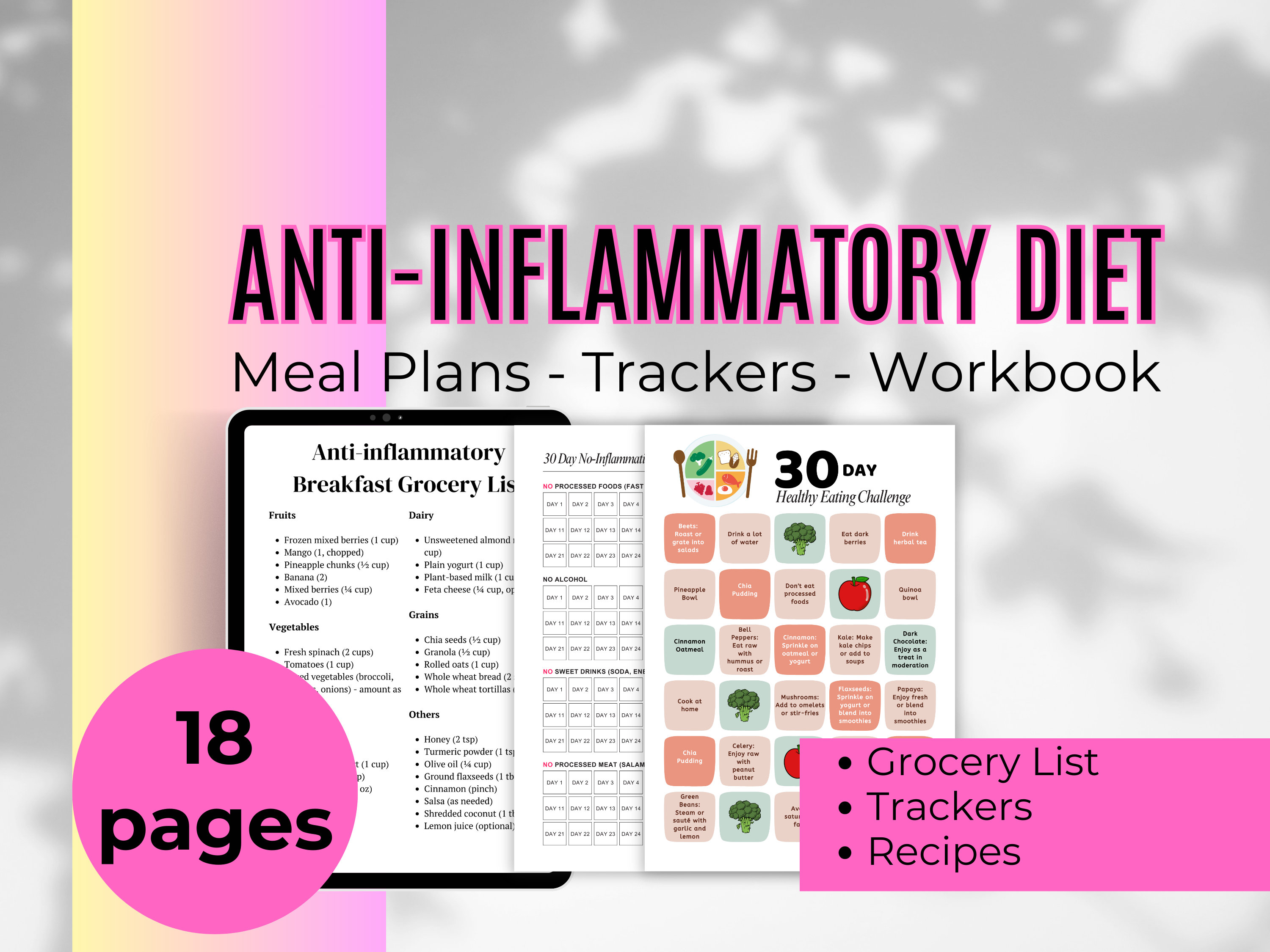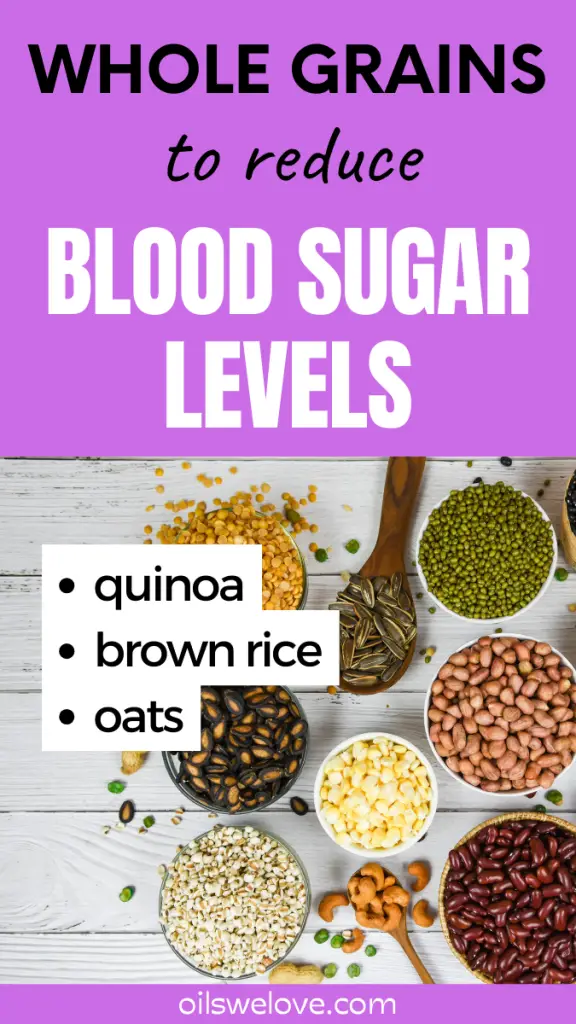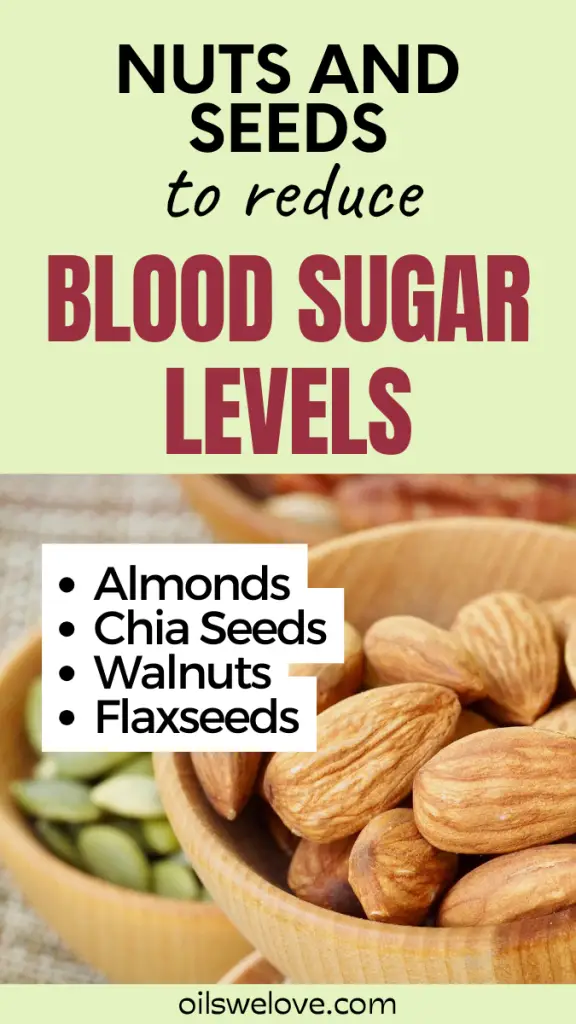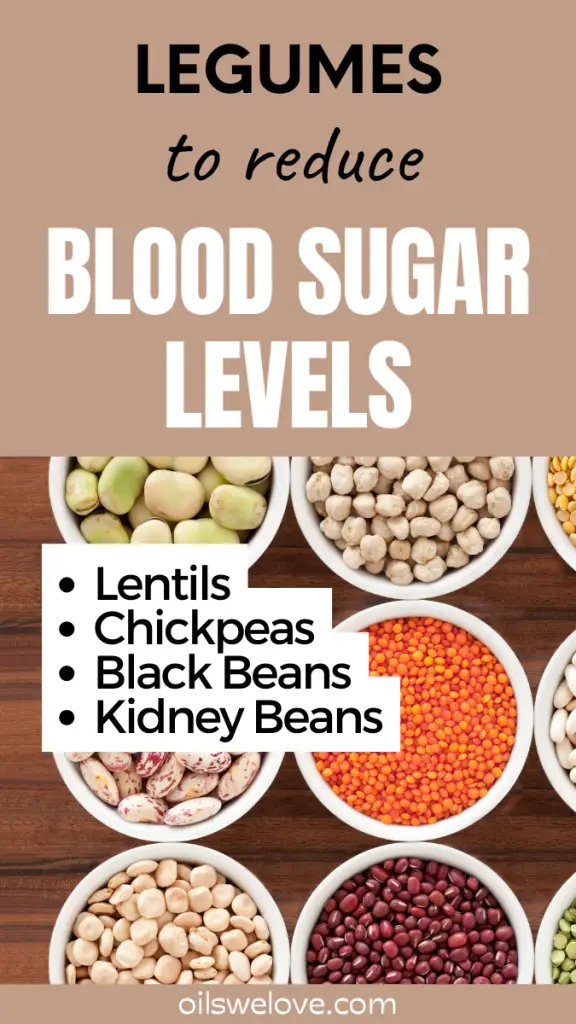Balancing blood sugar is essential for overall health and well-being. When our blood sugar levels are stable, we have more energy, better mood, and improved concentration. In this article, we will explore the best foods for balancing blood sugar and how they can be incorporated into our everyday diet.
Understanding Blood Sugar Balance
What is Blood Sugar?
Before we dive into the foods that can help balance blood sugar, let’s first understand what blood sugar is. Blood sugar, also known as glucose, is the primary source of energy for our bodies. It comes from the carbohydrates we consume, such as bread, pasta, and fruits.
When we eat foods that contain carbohydrates, our bodies break them down into glucose, which is then transported through the bloodstream to our cells. This glucose is used by our cells to produce energy, allowing us to perform various bodily functions and activities.

- 2-Week anti-inflammatory meal plan.
- 45 Foods that Cause Inflammation
- 31 Things to Avoid on Food Labels
- Grocery Lists. Challenges. Symptoms Tracker
However, it’s important to note that not all carbohydrates are created equal. Some carbohydrates, such as refined sugars and white bread, are quickly digested and cause a rapid increase in blood sugar levels. On the other hand, complex carbohydrates, found in whole grains and vegetables, are digested more slowly, resulting in a gradual and steady release of glucose into the bloodstream.
The Importance of Balancing Blood Sugar
Maintaining stable blood sugar levels is crucial because chronic imbalances can lead to serious health problems, including diabetes and obesity. When our blood sugar levels spike and crash, it can also result in irritability, fatigue, and cravings for unhealthy foods.
One of the key factors in blood sugar balance is the hormone insulin. Insulin is produced by the pancreas and helps regulate blood sugar levels by allowing glucose to enter our cells. When we consume foods high in carbohydrates, our bodies release insulin to help process and utilize the glucose effectively.
However, if our blood sugar levels remain consistently high due to a diet high in refined sugars and processed foods, our bodies may become resistant to insulin. This can lead to a condition known as insulin resistance, where our cells are less responsive to the hormone’s effects. As a result, our pancreas may produce more insulin to compensate, leading to elevated insulin levels in the bloodstream.
Elevated insulin levels can have various negative effects on our health. It can promote the storage of excess fat, especially around the abdomen, and increase the risk of developing type 2 diabetes. Additionally, high insulin levels can disrupt the balance of other hormones in our body, such as leptin (which regulates appetite) and cortisol (which regulates stress response).
On the other hand, when our blood sugar levels drop too low, it can result in hypoglycemia, a condition characterized by symptoms like dizziness, shakiness, and confusion. This occurs when the body has used up all available glucose and needs to rely on stored glycogen or fat for energy.
To maintain optimal blood sugar balance, it’s important to consume a well-rounded diet that includes a balance of carbohydrates, protein, and healthy fats. This can help slow down the digestion and absorption of carbohydrates, preventing rapid spikes and crashes in blood sugar levels.
In the next section, we will explore some specific foods that can help promote blood sugar balance and provide sustained energy throughout the day.
The Impact of Diet on Blood Sugar Levels
When it comes to managing blood sugar levels, the food we eat plays a significant role. It’s not just about the quantity of food consumed, but also about the quality. The choices we make can have a profound impact on our overall health and well-being.
How Food Affects Blood Sugar
Carbohydrates, especially refined ones like white bread and sugary treats, can cause a rapid rise in blood sugar. This is because these types of carbohydrates are quickly broken down into glucose, which enters the bloodstream, leading to a spike in blood sugar levels. On the other hand, protein, healthy fats, and fiber help slow down the absorption of carbohydrates, leading to more stable blood sugar levels.
For example, when you consume a meal that is high in carbohydrates but lacks protein and fiber, your blood sugar levels can skyrocket. This sudden surge in blood sugar can put stress on the body’s insulin response system, potentially leading to insulin resistance over time.
However, when you choose to include a balanced combination of carbohydrates, protein, and healthy fats in your meals, the absorption of carbohydrates is slowed down. This allows for a slower and more controlled release of glucose into the bloodstream, preventing sharp spikes and crashes in blood sugar levels.
The Glycemic Index Explained
An essential tool for understanding how different foods affect blood sugar is the glycemic index (GI). The GI measures how quickly foods raise blood sugar levels. Foods with a low GI, such as whole grains, legumes, and most fruits and vegetables, have a slower, steadier effect on blood sugar compared to high GI foods like white rice and sugary beverages.
By incorporating more low GI foods into your diet, you can help maintain stable blood sugar levels throughout the day. These foods are typically rich in fiber, which slows down digestion and prevents rapid spikes in blood sugar. Additionally, they provide essential nutrients and promote overall health.
It’s important to note that the glycemic index is not the only factor to consider when making food choices. The overall composition of a meal, including the combination of macronutrients and portion sizes, also plays a significant role in blood sugar management.
Understanding how different foods impact blood sugar levels empowers individuals to make informed choices about their diet. By prioritizing whole, unprocessed foods and focusing on a balanced combination of carbohydrates, protein, and healthy fats, it is possible to maintain stable blood sugar levels and support optimal health.
Top 5 Foods for Blood Sugar Control
1. Whole Grains and Blood Sugar
Whole grains, such as quinoa, brown rice, and oats, are excellent choices for balancing blood sugar. They are rich in fiber, which slows down digestion and helps prevent blood sugar spikes. Additionally, whole grains provide essential nutrients and antioxidants that support overall health.

2. The Power of Protein
Including protein-rich foods in your meals can also enhance blood sugar control. Eggs, lean meats, legumes, and tofu are all excellent sources of protein. Protein helps regulate blood sugar by slowing down the digestion process, preventing rapid blood sugar spikes after meals.

3. Fruits and Vegetables for Blood Sugar Balance
Fruits and vegetables are not only packed with vitamins and minerals but also contribute to blood sugar balance. While some fruits, like watermelon and pineapple, have a higher GI, most fruits, such as berries, apples, and oranges, have a moderate GI and provide essential fiber for steady blood sugar levels.

Vegetables, especially leafy greens, are low in carbohydrates and rich in antioxidants, making them an excellent choice for blood sugar control.

5. Healthy Fats and Blood Sugar
Don’t shy away from healthy fats, as they can actually benefit blood sugar balance. Foods like avocados, olive oil, and nuts contain monounsaturated fats, which help slow down digestion, leading to more stable blood sugar levels. Including a moderate amount of healthy fats in each meal can also help you feel satisfied and reduce cravings.

6. Legumes. Beans, lentils, and peas are high in fiber and protein, which stabilize blood sugar levels by slowing digestion and reducing the post-meal rise in blood sugar.

Foods to Avoid for Balanced Blood Sugar
Sugary Drinks and Blood Sugar
Sugary drinks are one of the biggest culprits when it comes to blood sugar imbalances. Beverages like soda, fruit juices, and sweetened coffee drinks can cause a rapid spike in blood sugar, followed by a crash. Opting for water, herbal tea, or unsweetened beverages can make a significant difference in blood sugar control.
Processed Foods and Blood Sugar Levels
Processed foods, such as white bread, sugary cereals, and packaged snacks, are often high in refined carbohydrates and unhealthy fats. These foods can quickly raise blood sugar levels and contribute to insulin resistance over time. It is best to limit or avoid these types of foods and opt for whole, minimally processed alternatives.
Incorporating Blood Sugar Balancing Foods into Your Diet
Meal Planning Tips
To ensure you’re getting a variety of blood sugar balancing foods, try incorporating them into your meal planning. Start by focusing on whole grains, lean proteins, and plenty of fruits and vegetables. Plan your meals in advance and have healthy snacks on hand to prevent reaching for processed and sugary options when hunger strikes.
Healthy Recipes for Blood Sugar Balance
Experimenting with new recipes can be an exciting way to incorporate blood sugar balancing foods into your diet. Here are a few ideas to get you started:
- Quinoa Salad with Roasted Vegetables and Grilled Chicken
- Oatmeal with Berries and a Sprinkle of Nuts
- Stir-Fried Tofu and Mixed Vegetables with Brown Rice
- Spinach and Feta Stuffed Chicken Breast with Steamed Broccoli
Remember to vary your food choices and portion sizes to ensure a well-rounded diet.
By incorporating these blood sugar balancing foods into your diet, you can support stable blood sugar levels and overall health. Remember, small changes can make a big difference, so start by making gradual modifications to your eating habits. Consult with a healthcare professional or registered dietitian for personalized guidance on balancing blood sugar through diet.





